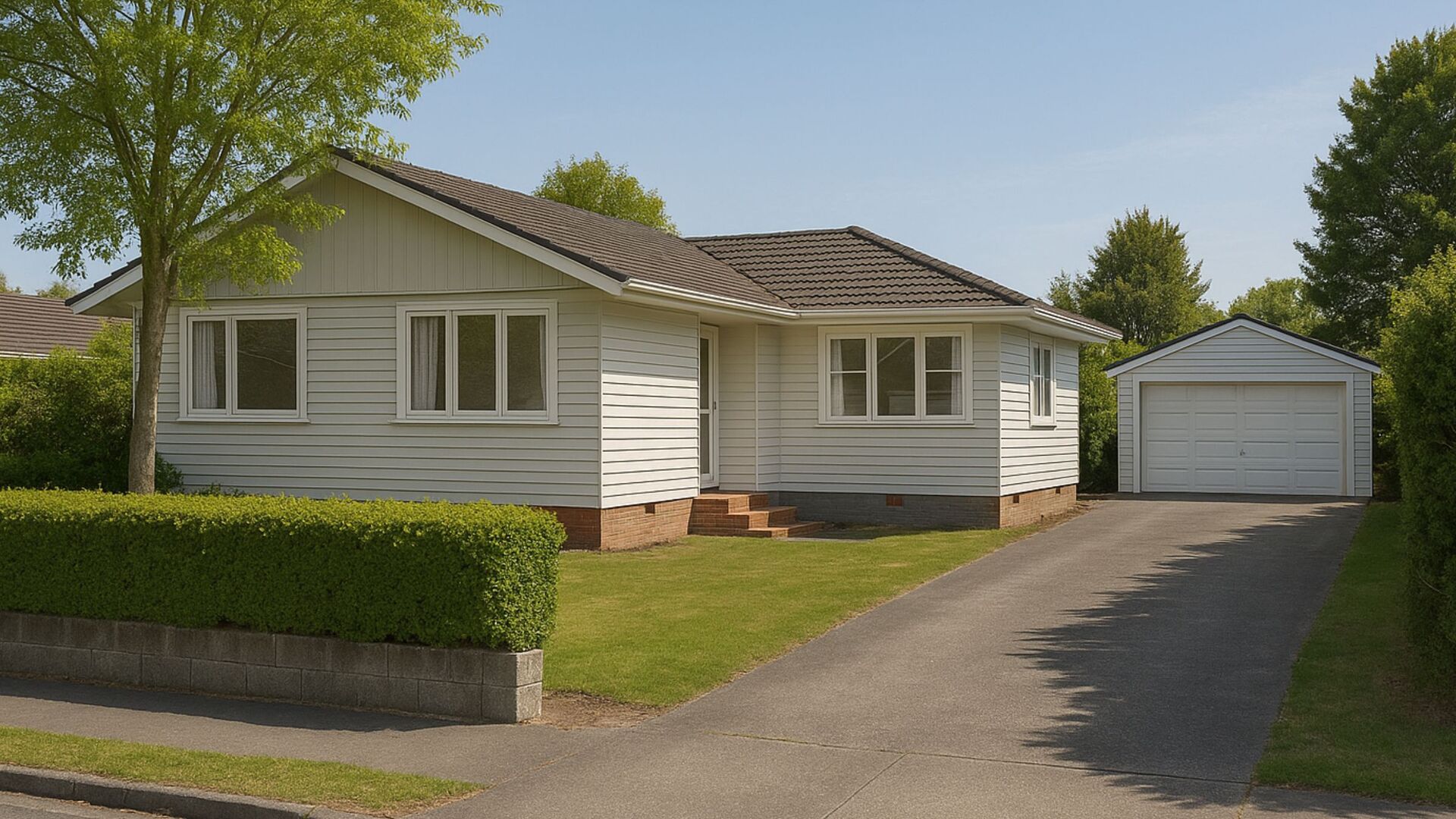




As the New Zealand property market enters a new phase in 2025, many investors are asking the same question: Should I hold my rental property or sell and redeploy the capital elsewhere?
The answer isn’t simple but it starts with understanding your numbers, your long-term goals, and where the Christchurch real estate market is heading.
Let’s take a real-world case to illustrate the decision-making process.
A three-bedroom home in Redwood, Christchurch a popular first-home suburb with strong rental demand — was purchased around seven years ago for approximately $600,000. The owner still owes $310,000 on the mortgage at a 4.5% interest rate.
Today, the property is valued between $600,000 - $630,000, with rental income around $590 per week. After accounting for typical annual costs such as insurance, rates, maintenance, and a small vacancy buffer, the property generates a positive cash flow of roughly $5,500 per year before tax.
Even with modest returns, positive cash flow properties remain highly valuable in 2025.
A rental that covers its own costs protects you from market volatility and rising interest rates while allowing capital growth to compound quietly in the background.
Over a ten-year period, this property could generate around $55,000 in cumulative cash flow, plus potential capital growth of $300,000 if prices rise 3–5% annually. That combination - consistent income and steady appreciation — is what keeps long-term investors ahead.
Before making any move, investors should ask two critical questions:
Do I need the money now?
If you have a pressing financial goal or debt to clear, selling may make sense.
Is the property cash flow positive or at least manageable?
If it’s performing well and doesn’t drain your cash each month, holding often provides the best balance of income and growth.
In our case study, the investor didn’t need the capital immediately — and the property was cash flow positive.
Higher-value properties — typically around the $1 million mark — can struggle to perform from a cash flow perspective.
If your mortgage and expenses turn the property into a long-term cash drain, it may be wiser to sell and redeploy into two smaller, cash flow positive homes. Diversification and positive income streams can improve both stability and returns.
Whether you’re a seasoned investor or just entering the New Zealand property market, 2025 is a year to make decisions based on clarity, not emotion.
Many investors have turned to new-build townhouses, but caution is warranted.
High supply in certain suburbs has created intense competition, and uniform developments mean that one distressed sale can reduce the value of neighbouring units.
Standalone homes, by contrast, often deliver stronger long-term capital growth and attract stable tenants.
Watch our in-depth video things to know before buying a townhouse in New Zealand.
Townhouses have become a popular choice across the Christchurch real estate market, especially for investors looking for affordable entry points or newer, low-maintenance homes. However, as Nathan often reminds clients, not all townhouses make equal investments. Understanding both the pros and cons is key before you buy.
1. Lower Purchase Cost
Townhouses generally offer a lower upfront price than standalone homes, allowing new investors to enter the New Zealand property market with less capital. This can be an advantage in areas where standalone homes are increasingly expensive.
2. Less Maintenance
Modern townhouses often come with smaller gardens and new building materials that require less upkeep. For investors who prefer a hands-off approach, this can reduce both maintenance costs and time.
3. Good Location and Access
Many townhouse developments are built close to key amenities — shopping centres, transport routes, and workplaces. This makes them appealing to tenants who prioritise convenience and lifestyle.
4. Decent Rental Returns
Because of their affordability and location, well-positioned townhouses can achieve steady rental demand and reliable yields, especially when interest rates are favourable.
5. Modern Features
Newer builds typically include energy-efficient appliances, double glazing, and modern interiors that attract quality tenants and minimise short-term capital expenditure.
1. Slower Capital Growth
Compared to standalone homes on full sections, townhouses often experience slower long-term capital growth. The reason? Less underlying land ownership — which is where most of the value appreciation happens over time.
2. Shared Walls and Less Privacy
Attached layouts mean reduced privacy, potential noise transfer, and less outdoor space. For many buyers or long-term tenants, these can be deterrents when choosing where to live.
3. Body Corporate or Shared Fees and Rules
Many townhouse complexes operate under body corporate or shared management structures. These come with rules and regular fees that can eat into net returns and limit flexibility (for example, restrictions on pets or renovations).
4. Risk of Oversupply in Some Areas
Nathan has warned that in certain suburbs, up to one in four properties on the market can be a townhouse. This oversupply increases competition, putting pressure on resale values and rental demand — particularly in large, uniform developments.
5. Smaller Land = Less Value Growth Potential
Because most townhouse owners don’t control much land, they miss out on the land-driven value appreciation that powers long-term returns in standalone homes. When land value rises faster than building value, this difference becomes significant over time.
Nathan’s Key Advice
Townhouses aren’t bad investments, but they require careful selection. Look for differentiation within a development:
End units or front-facing homes with more light and space
Townhouses with a garage or private outdoor area
Locations near transport, employment hubs, or top school zones
In other words, avoid being “one of many identical properties.” The more unique the unit, the better it will hold value — even in a competitive market.
At Najib Real Estate, we specialise in helping investors make informed, data-driven decisions about their property portfolios.
If you’d like to review your investment strategy or run a customised projection for your property, get in touch with our team - we’ll help you find the right move for 2025 and beyond.